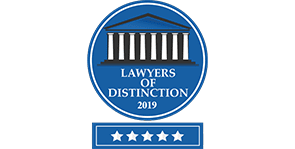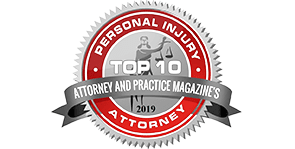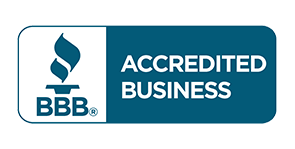Posted On October 9, 2024 California,Car Accidents
As experienced personal injury attorneys in California and experts in car accident cases, we understand that securing the highest settlement after a car accident is crucial for covering medical expenses, lost wages, and other damages.
This comprehensive guide will provide you with a roadmap to maximize your settlement, ensuring you receive the compensation you deserve.
Car accidents can have devastating impacts on your life, from physical injuries to financial stress. Settlements can cover medical bills, property damage, lost wages, pain and suffering and more. In California, at-fault drivers responsible for the accident must compensate the victim for damages. Understanding the legal landscape and employing the right strategies can significantly increase the amount of your settlement.
The first and most crucial step after a car accident is to seek immediate medical attention, regardless of how minor you think your injuries might be. Delayed medical care can have serious consequences not only for your health but also for your legal case.
Ensuring that all injuries are thoroughly documented by healthcare professionals is vital. Medical records serve as crucial evidence to demonstrate the extent and impact of your injuries. This documentation will play a key role in negotiations with insurance companies and, if necessary, in court.
Evidence from the accident scene is critical in proving fault and the extent of damages. Here’s what you should collect:
Always call the police after a car accident. A police report provides an unbiased account of the incident, which is invaluable in negotiations and legal proceedings. It includes details of the accident, statements from involved parties, and sometimes, the officer’s opinion on fault.
In the aftermath of an accident, emotions can run high. It’s natural to want to apologize or make statements about the incident, but these can be used against you. Admitting fault or even implying it can significantly reduce your settlement amount. Find ways to show empathy, if warranted, without admitting fault or a statement that can be interpreted as such.
Insurance adjusters may try to get you to admit partial fault or downplay your injuries. Remember, California follows a comparative fault rule, meaning your settlement could be reduced if you are found partially at fault. Even a simple “I’m sorry” could be interpreted as admitting liability. Another common insurance tactic is to ask if there was “anything you could have done to avoid the accident”. This is a loaded question because there is always SOMETHING you could have done (ie. you could have chosen to walk and not drive a vehicle). Do not speculate in anyway or admit fault if answering this question.
Navigating the complexities of a car accident claim can be overwhelming, especially when dealing with insurance companies. Hiring a seasoned car accident attorney is crucial for maximizing your settlement. An attorney will:
Look for an attorney with a proven track record in personal injury and car accident cases. They should be familiar with California’s specific laws and have experience negotiating with insurance companies.
Several factors contribute to the value of a car accident settlement. Understanding these can help you advocate for a fair compensation amount:
In California, non-economic damages are also recoverable, including:
Consider the case of John, a victim of a serious car accident who suffered multiple injuries, including a broken leg and a concussion. Initially, the insurance company offered John a $10,000 settlement to cover his medical bills and lost wages. At first glance, this seemed like a substantial amount of money, especially as John faced immediate medical expenses and time off work.
However, John’s injuries were more severe than initially diagnosed, leading to ongoing physical therapy, additional medical treatment, and extended time away from work. After consulting with a car accident attorney, John rejected the initial settlement offer. His attorney gathered extensive evidence, including medical records, expert testimony, and financial statements showing the true impact of the accident on John’s life.
Through negotiations, it became clear that the initial offer was inadequate to cover John’s medical bills, future medical needs, lost wages, and non-economic damages such as pain and suffering. The attorney’s involvement and strategic negotiations led to a new settlement offer of $100,000. This amount more accurately reflected the true extent of John’s injuries and the financial and emotional toll of the accident.
Do not accept a settlement offer before understanding the full extent of your injuries and the long-term impact on your life. Accepting a low offer can leave you responsible for future medical expenses and other costs.
While most car accident cases settle out of court, sometimes negotiations fail, and proceeding to trial may be necessary. Being prepared for this possibility ensures you are not pressured into accepting an unfair settlement.
If your case goes to trial, a judge or jury will determine the outcome. This can potentially lead to a higher settlement if the evidence strongly supports your case. An experienced attorney will guide you through the trial process, presenting a compelling argument for why you deserve maximum compensation.
Securing the highest settlement after a car accident in California requires prompt action, thorough documentation, and skilled legal representation. By seeking immediate medical attention, documenting everything, avoiding admissions of fault, hiring an expert attorney, understanding your claim’s value, being cautious of early settlement offers, and preparing for trial, you can maximize your settlement and ensure you receive the compensation you deserve.
If you or a loved one has been involved in a car accident, don’t hesitate to reach out to a qualified personal injury attorney. With the right legal support, you can navigate the aftermath of a car accident with confidence, knowing you have the best possible chance of achieving a settlement that fully addresses your needs and losses.
“Disclaimer:
The content provided on this blog is for general informational purposes only and does not constitute formal legal advice. While we strive to ensure the accuracy and timeliness of the information presented, we make no guarantees. The information provided here should not be relied upon as a substitute for professional legal advice tailored to your specific circumstances.
Your use of this blog and any information contained herein does not create an attorney-client relationship between you and our firm. For advice regarding your individual situation, please contact our office as we would be happy to discuss your case. We expressly disclaim all liability with respect to actions taken or not taken based on any or all the contents of this blog.”









© 2022 MONTGOMERY STEELE LAW | ALL RIGHTS RESERVED | disclaimer

